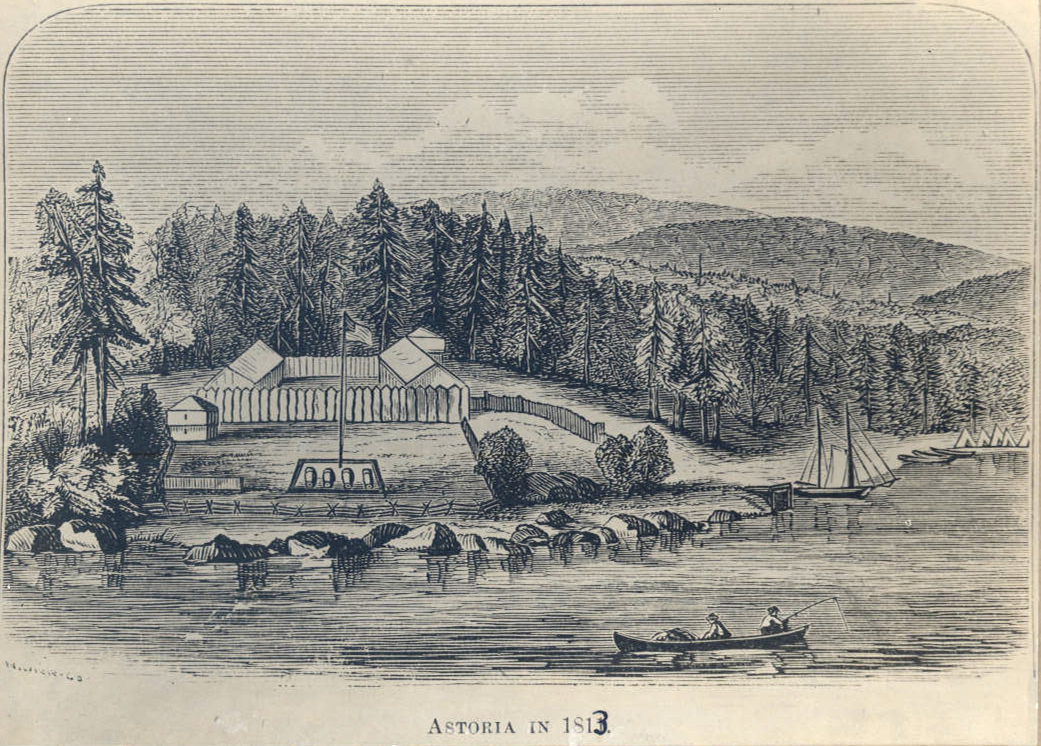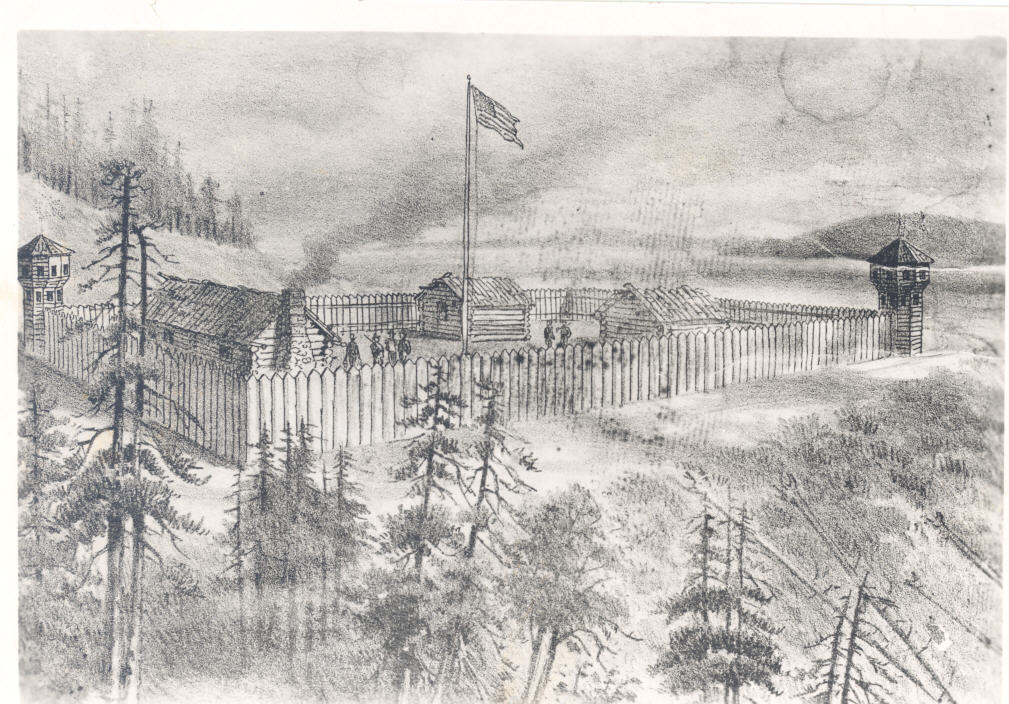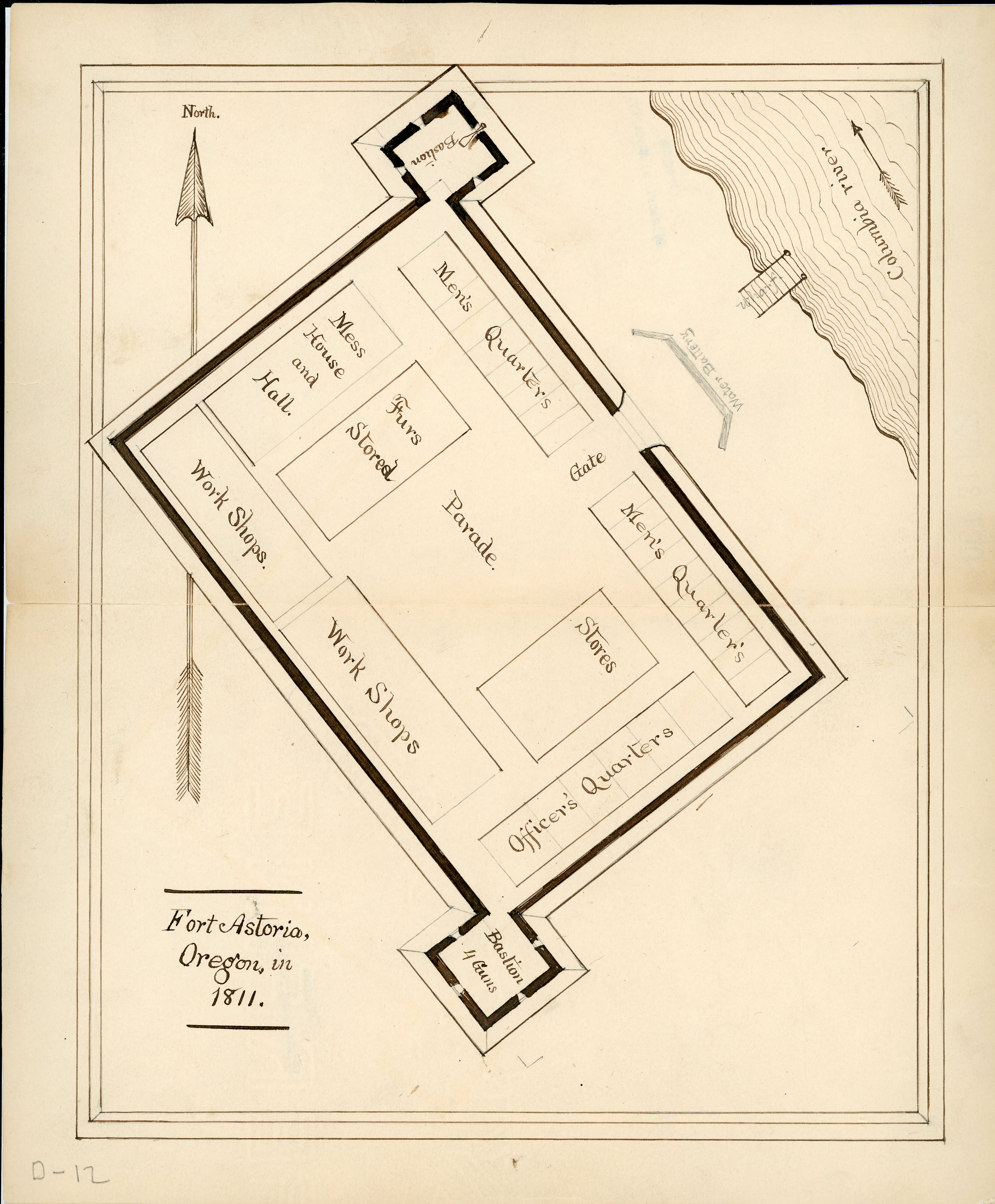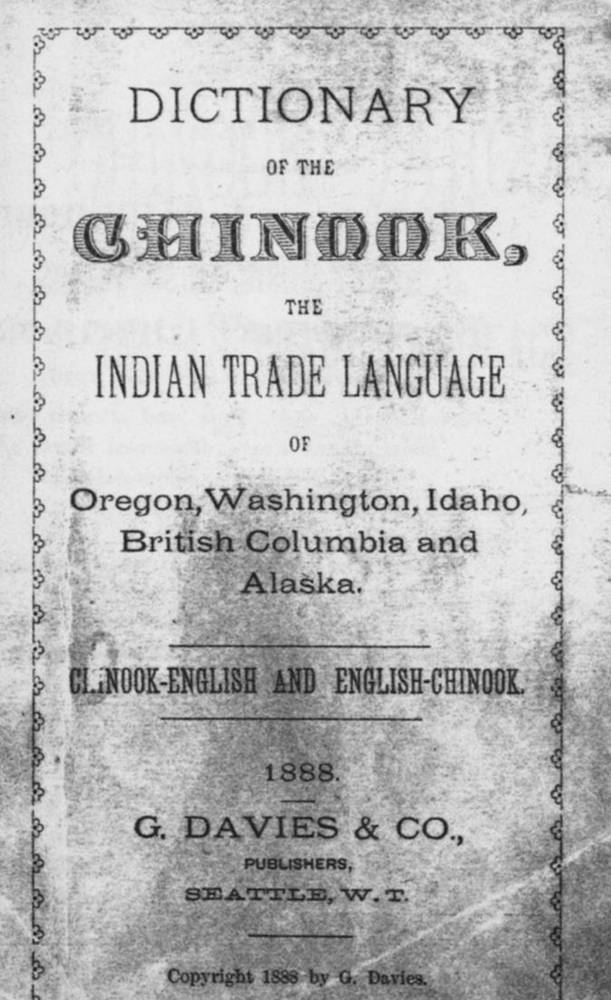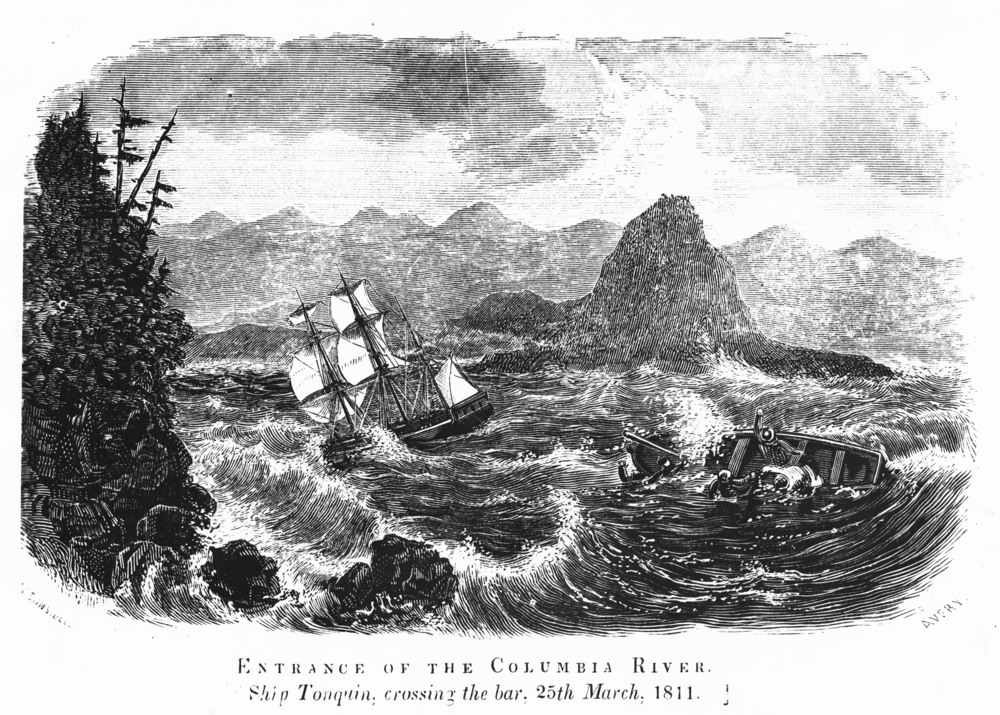Fur trader Archibald Pelton was murdered in the early days of Astoria, and the trial of those accused of the crime is sometimes cited as the first murder trial in Oregon.
Born to a Massachusetts farming family in 1791, eighteen-year-old Archibald Pelton found his way to St. Louis, where he signed on with the Missouri Fur Company on a keelboat voyage to the headwaters of the Missouri River. Fellow trapper Thomas James, in an 1846 memoir about the expedition, described Pelton as “a jovial popular fellow” who entertained the brigade with his songs and sermons. “At every stopping place,” James wrote, “Pelton held a meeting for the mock trial of offenders and exhorted us in the New England style to mend our courses and eschew sin.” Such eccentricities may have contributed to Pelton's later being nicknamed “Judge.”
James remembered Pelton as having a peculiar face, especially eyes that "resembled those of a bear.” One day, while Pelton was checking traps, James reported, “he was attacked by a large bear, which…stood over him with his eyes fixed on his face as if observing his features; Pelton screamed and yelled in a most unearthly manner, and his new acquaintance, as if frightened by his appearance and voice…growled, and then walked off.” James added, whimsically, that Pelton figured his “bearish eyes” drove the grizzly away.
Pelton and his group also endured ferocious winter storms, severe hunger, and Blackfeet raids. When the trapping party had dwindled to only a few dozen men, mainly through desertion, Pelton remained, helping establish fur stations on the Jefferson River in present-day Montana and the Henry’s Fork of the Snake in present-day Idaho.
By spring 1811, however, Pelton somehow was separated from the expedition. Members of the Pacific Fur Company discovered him in January 1812 living among the Nez Perces on the Snake. Judging him “deranged,” they took him to Fort Astoria, where over the next eighteen months he was described in the company log as “our madman,” "our strange fellow," and an “object of compassion.”
Although Pelton strayed into the forest for days at a time and lived on berries, he was deemed sane enough to work at a sturgeon fishing camp up the Columbia River and in the coal pit and tobacco gardens near the fort. When the North West Company bought Fort Astoria and renamed it Fort George in 1813, Pelton stayed on, appearing on company rosters as the resident “fool” and “idiot.”
Pelton has been identified by historians as the mentally ill man from New England named “Judge” who was murdered at a coal pit with his own ax in late 1814 or early 1815, as described by Ross Cox in Adventures on the Columbia River. According to Cox, two Tillamooks were apprehended after the killing and were tried by a panel of jurists made up of Nor’Westers and Native elders. Cox described “Judge” as “the most harmless individual belonging to [their] establishment” and claimed that the murder was a revenge killing gone awry. Pelton reportedly had been misidentified as a man who had injured an Indian with a sword some months earlier in a dispute over pilfered goods. The trial ended in convictions, and the two accused men were clumsily executed by firing squad on the grounds in front of the fort. Historian J. Neilson Barry called it the first murder trial recorded in Oregon, although it was not yet an American territory.
Pelton would be memorialized in a most unusual way. His odd behavior—and perhaps his tragic demise and its dramatic aftermath—made such an impression on Columbia River residents that his name lived on in Chinook Jargon (Chinuk Wawa) as piltən, meaning “crazy” or “foolish.”
-
![Earliest known illustration of Fort Astoria, by Gabriel Franchere, employed by Astor,]()
Fort Astoria, 1813.
Earliest known illustration of Fort Astoria, by Gabriel Franchere, employed by Astor, Courtesy Oreg. Hist. Soc. Research Library, OrHi51
-
![From the West Shore Magazine, 1890]()
Fort Astoria.
From the West Shore Magazine, 1890 Courtesy Oreg. Hist. Soc. Research Library, Orhi691
Related Entries
-
![Astor Expedition (1810-1813)]()
Astor Expedition (1810-1813)
The Astor Expedition was a grand, two-pronged mission, involving scores…
-
![Chinook Jargon (Chinuk Wawa)]()
Chinook Jargon (Chinuk Wawa)
According to our best information, the name "Chinook" (pronounced with …
-
![Fort George (Fort Astoria)]()
Fort George (Fort Astoria)
Fort George was the British name for Fort Astoria, the fur post establi…
-
![North West Company]()
North West Company
First organized in 1779 by a small group of Canadian fur traders based …
-
![Pacific Fur Company]()
Pacific Fur Company
The Pacific Fur Company, employee Alexander Ross wrote in 1849, was “an…
Related Historical Records
Map This on the Oregon History WayFinder
The Oregon History Wayfinder is an interactive map that identifies significant places, people, and events in Oregon history.
Further Reading
Barry, J. Neilson. "Archibald Pelton: The First Follower of Lewis and Clark." Washington Historical Quarterly 19 (1928): 199-201.
Cox, Ross. The Columbia River. Edited by Edgar I. Stewart and Jane R. Stewart. Norman: University of Oklahoma Press, 1957.
James, Thomas. Three Years among the Indians and Mexicans. Lippincott, 1962.
Jones, Robert F., ed. Annals of Astoria: The Headquarters Log of the Pacific Fur Company on the Columbia River, 1811-1813. New York: Fordham University Press, 1999.

